By Kate Lockwood, Liz Walsh, Rick Ballew and Alexandra Holter
This April, the Minnesota Chapter of the CSTA hosted its first in-person professional development event: the MN+CS conference. The event was a success; there were over 100 registered participants engaging in a full day of interactive sessions. These sessions, ranging from AI in the classroom and CS integration across subjects to Minnesota state policy updates and quantum computing—the conference offered something for every educator, regardless of grade level or experience. We wanted to share our experience with other chapters considering a similar event, including what we think are the key components of a successful professional development experience.
Computer science education in Minnesota is at a tipping point. In the latest State of CS report, our state inched up from 50th to 48th. However, state funding is being cut, and we lack statewide standards and teacher licensure. As statewide CS education lags, our chapter has struggled with increasing participation. With the lack of a license and academic standards, it has been difficult to recruit teachers to CSTA. What has proved even harder than that is convincing teachers that they are CS educators since many people delivering CS content identify primarily in a different department (e.g. math, CTE). The CSTA-MN board is small but dedicated and has been working on these issues for a long time. This past year, all of our meetings had at least 20 participants, which represents significant growth from previous years. We wanted to continue to build the momentum of this small but growing community of educators in Minnesota. Planning a full-day PD event was deemed critical for moving forward computer science education in our state. There were a few key components that helped us move our idea of a full-day PD event to reality.
The first, and most important, key to the success of MN+CS was the power of partnership. Our ability to bring this event to life was made possible through strong, supportive relationships with local and national organizations committed to advancing computer science education in Minnesota. Partners contributed in meaningful ways, from managing event logistics to offering space, resources, and promotional support.
The Raspberry Pi Foundation (RPF) played a central role in MN+CS, specifically through outreach, event logistics, and on-the-ground support the day of the event. Dunwoody College of Technology generously provided space, and ongoing support free of charge. Target hosted a pre-conference dinner reception that helped foster community and connection on Friday. Additionally, smaller local businesses and nonprofits participated in other ways, such as being on the planning committee, hosting exhibits during the event, and providing raffle prizes for participants.
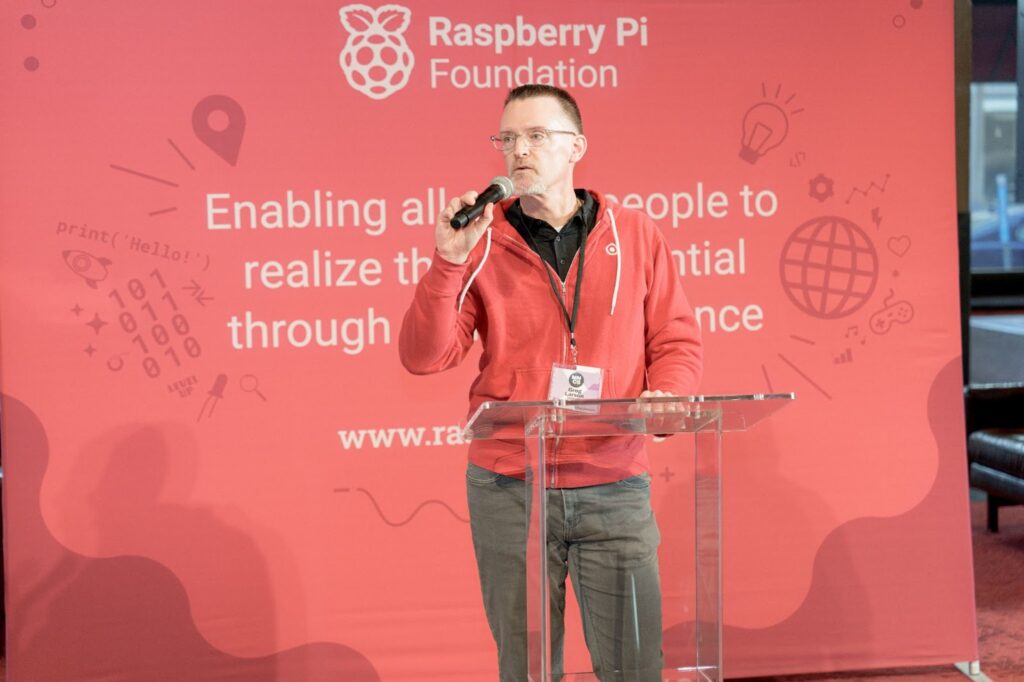
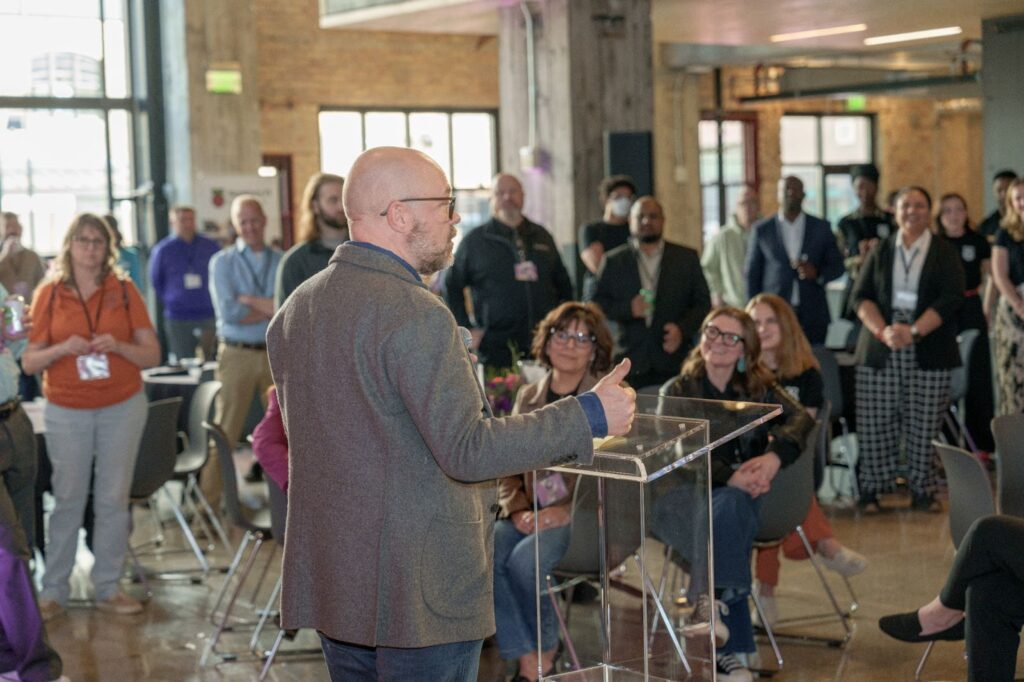
These organizations and individuals demonstrated their commitment to Minnesota’s CS education ecosystem, and we are deeply grateful for their collaboration. We encourage other CSTA chapters to look for their own local CS champions. Whether it’s higher education, tech companies, or nonprofits, these partners can offer much-needed capacity and perspective, and help build the kind of support systems that make events like this not only possible but sustainable.
Another, vitally important component of the success of MN+CS was that throughout the process, we remained committed to having a conference that was by and for teachers. Classroom teacher voices were not just included, but elevated at each step of planning. Teachers were part of the planning committee that set the schedule for the day, teachers were part of the review process, and the schedule was crafted to make sure that teachers were represented throughout the sessions. While a lot of the administrative overhead was handled by community partners, we were careful to make sure that the content of the day was still focused on the needs of educators. This is something that we will continue to prioritize as we plan for future events like this one.
To fit with the busy spring schedule of teachers, the MN+CS conference was one day on a Saturday. The day started with a keynote, followed by three breakout sessions and a poster/exhibit hour after lunch. Breakout sessions were 50 minutes each, with one set of shorter flash talks. We plan to increase the number of flash talks next year to allow for more voices to share their work at MN+CS.
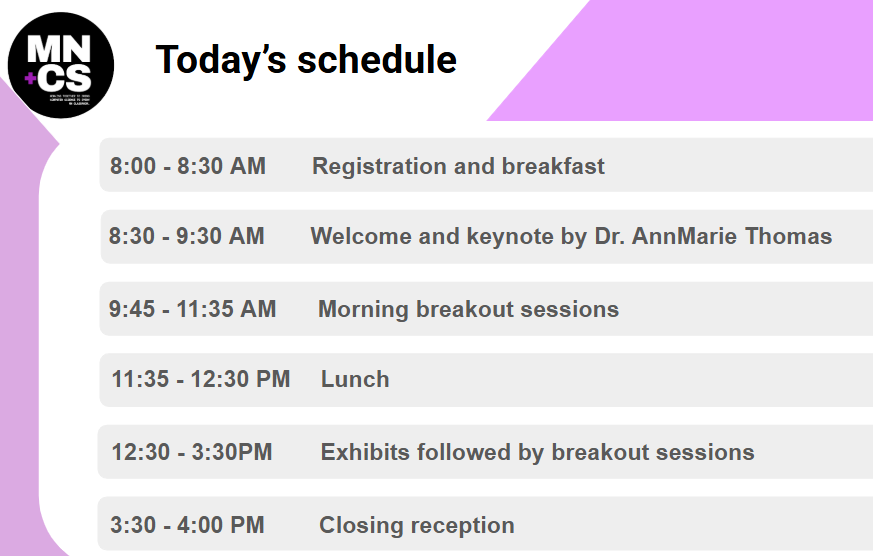
The success of the first MN+CS conference is both a moment of celebration and a reminder of the work ahead. It reflects the momentum building across Minnesota to expand access to high-quality computer science education—and the power of teachers, partners, and organizations coming together to lead that charge. The energy, collaboration, and engagement we witnessed at MN+CS make clear that this is a community ready to grow.
Looking forward, we are focused on making MN+CS a sustainable, annual event. That means expanding participation beyond those who currently identify as CS educators, increasing support for classroom teachers, and continuing to foster a professional learning environment that is collaborative, equitable, and joyful.

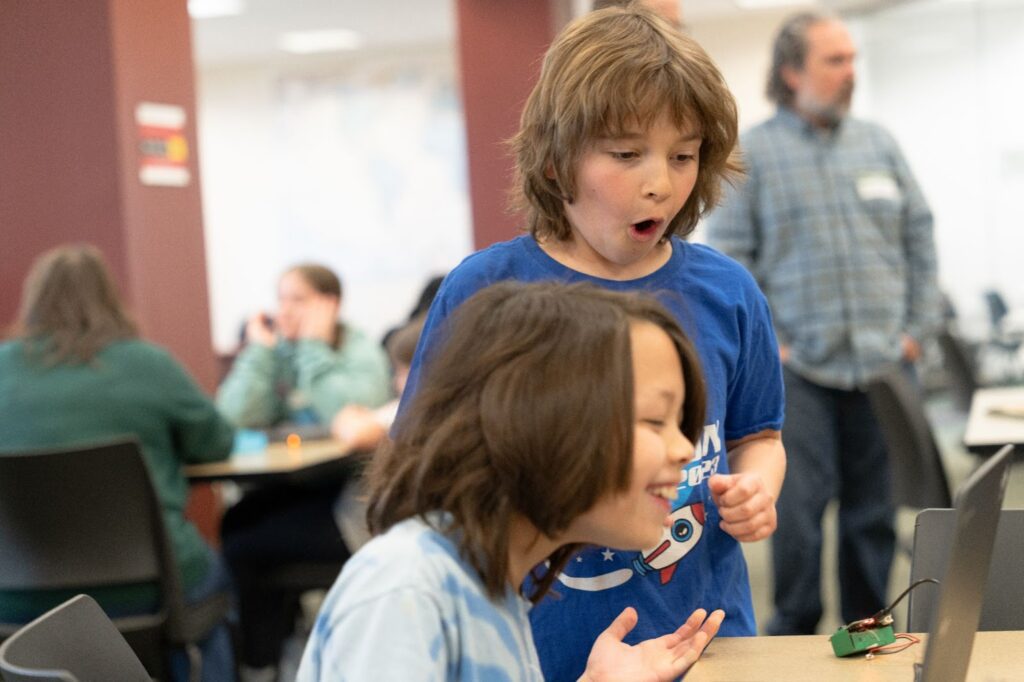
Fig 4. Hands-on workshop sessions and an exhibit hall provided student-centered resources for teacher attendees.
At the same time, this celebration comes with a call to action: Minnesota must invest in CS education at the state level. Without dedicated legislative funding and a comprehensive statewide strategy, the responsibility for growing CS access will continue to rest on a patchwork of volunteers, nonprofits, and under-resourced educators. Events like MN+CS show what’s possible—but to make that possibility widespread and lasting, we need systemic support.
As we move forward, we will continue to center teachers, cultivate partnerships, and advocate fiercely for the policies and investments needed to ensure that all students in Minnesota have the opportunity to learn, create, and thrive through computer science —while also welcoming continued support and partnership from national organizations like CSTA to help amplify these efforts.
About the Authors

Kate Lockwood is the Director of Computer Science and Engineering at St. Paul Academy in St. Paul Minnesota where she teaches computer science, engineering, and robotics. Kate is passionate about expanding access to high-quality computer science education and serves on the leadership board of the Minnesota chapter of the CSTA.
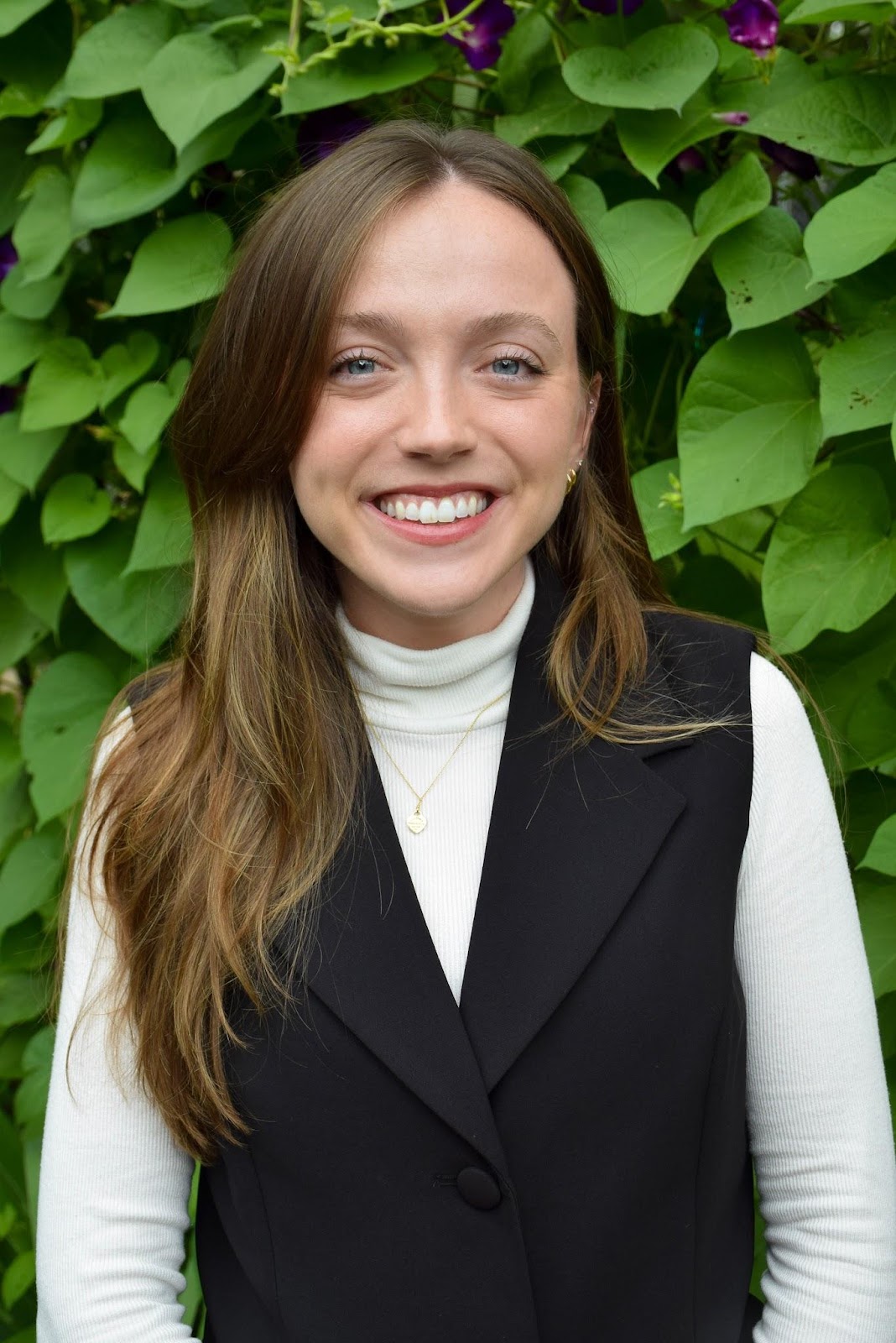
Liz Walsh is a Learning Manager at the Raspberry Pi Foundation. She leverages her background as an elementary educator to design learning experiences that are relevant and engaging for students. She is passionate about developing sustainable CS pathways in schools and believes that the most effective way to achieve this is by empowering educators with the knowledge and skills to bring meaningful CS opportunities to students of all ages.
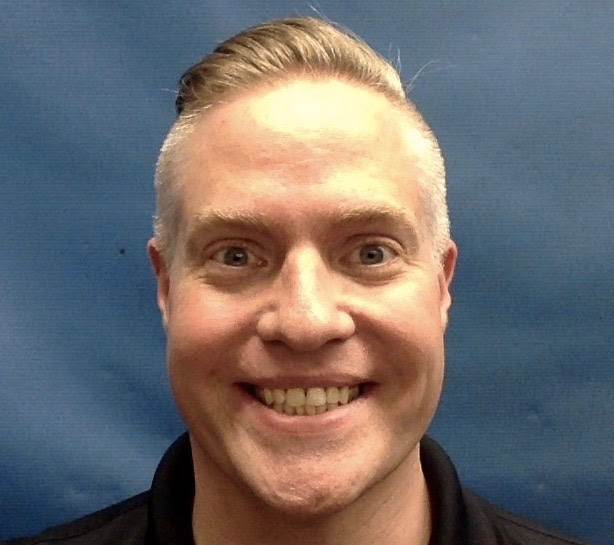
Rick Ballew, CSTA-MN Co-president, holds numerous certifications from ISTE and Google for Education (Innovator NYC19 cohort, Trainer, Coach), leads GEG Minnesota Metro Area, and was a Microsoft Innovative Educator Expert/Fellow (2020-2025, 2022-2025) and Adobe Creative Educator Innovator. Passionate about using technology to improve educators’ efficiency, engagement, and well-being, he has degrees in music education, curriculum and instruction (Arts Integration), and educational technology, with ongoing doctoral studies. Ballew taught band (1998-2021) and currently teaches computer science and engineering in Bloomington Public Schools (ISD #271).
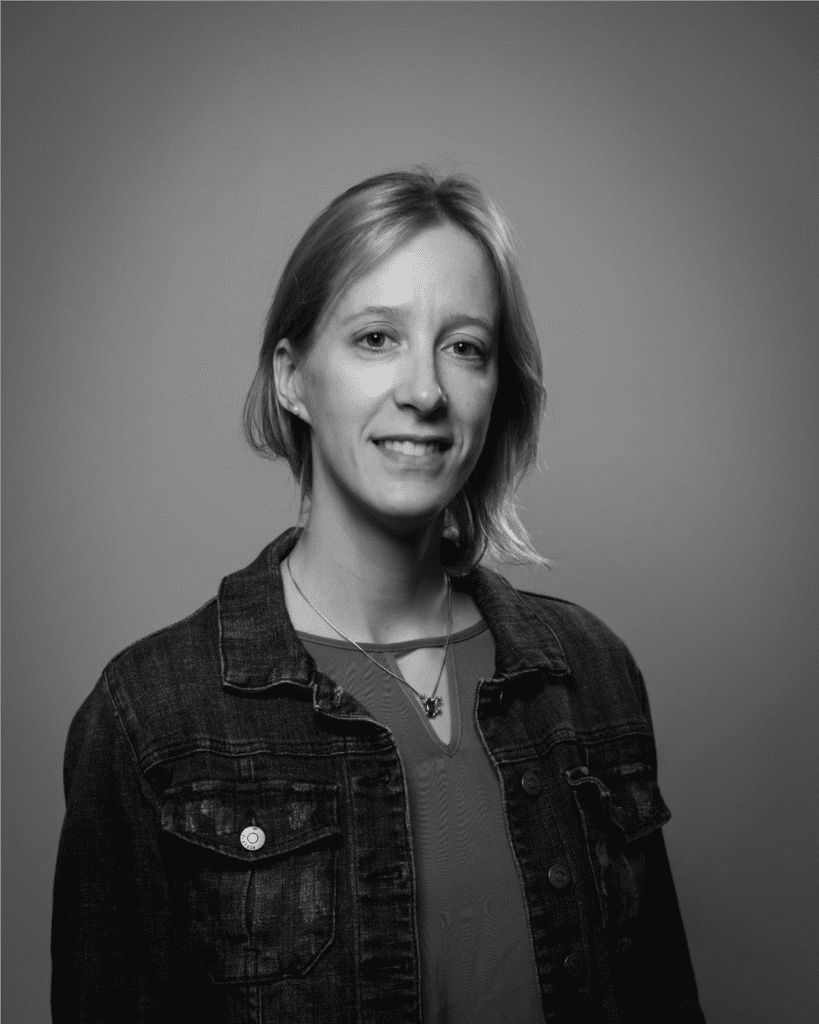
Alexandra Holter is a Computer Science Coordinator, K-12, for Bloomington Public Schools in Bloomington Minnesota. She has been an educator for the past 14 years. Her career started in Tulsa Oklahoma where she obtained her BA and Masters of Science in Mathematics and Science Education. Then she first taught her first class of 7th grade science and has been committed to eliminating young people’s barriers to STEM ever since. In 2015 she completed her Ph.D.in Educational Leadership and Policy Studies from Oklahoma State University. In her current role she supports K-12 teachers and schools with building their individual and site level CS capacity so that CS really can be for all. She is a current member of the CSTA Policy Committee, CSTA Editorial Board, and SciMathMN Board Member.

